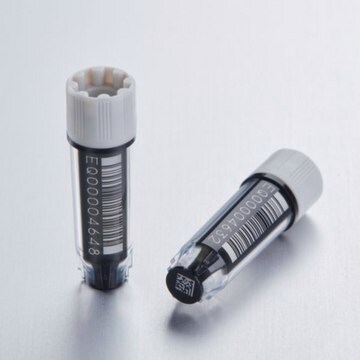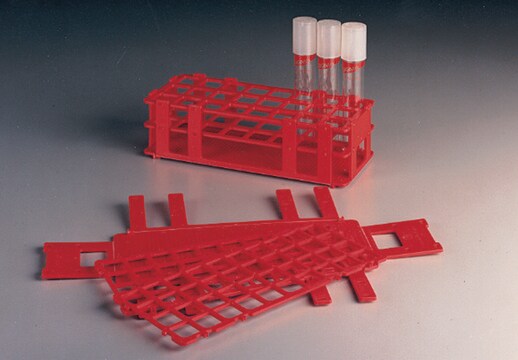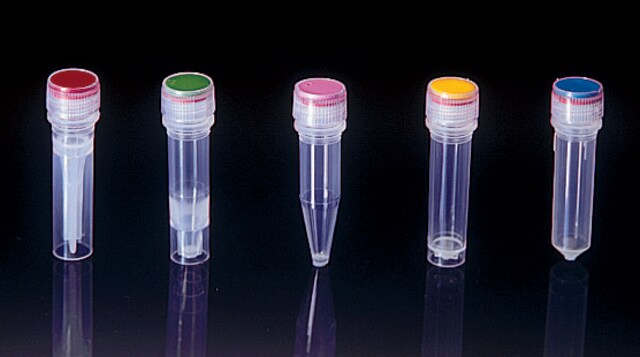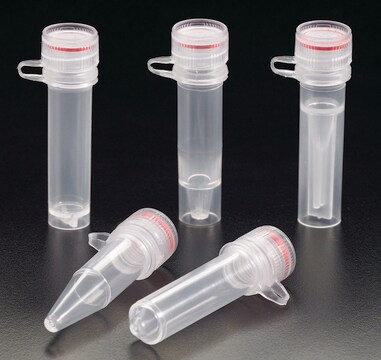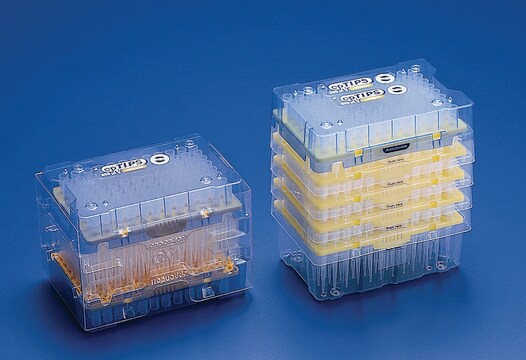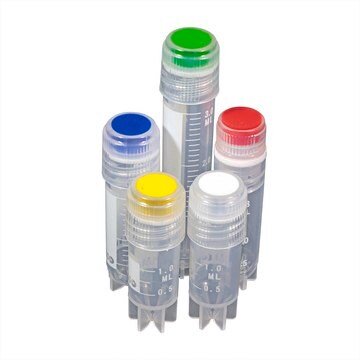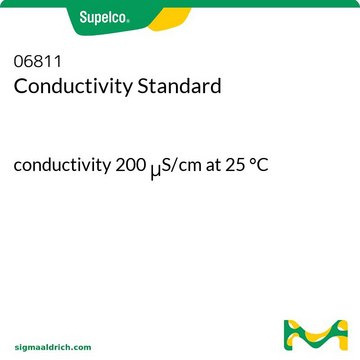EP0030079450
Eppendorf CryoStorage Vials with SafeCode system (data matrix code, barcode and plain text labels)
sterile, capacity 0.5 mL, pack of 960 × (10 x individually packed racks with 96 vials each)
Sinonimo/i:
Cryogenic vials, Eppendorf® 2D Coded Vials, Eppendorf® SafeCode Vials
About This Item
Prodotti consigliati
Materiali
flat bottom
polypropylene
screw top cap
Sterilità
sterile
Caratteristiche
DNase free
endotoxin free
neck thread External
Produttore/marchio commerciale
Eppendorf® 0030079450
Confezionamento
pack of 960 × (10 x individually packed racks with 96 vials each)
Parametri
temp. range at -196 °C
Capacità
0.5 mL
Cerchi prodotti simili? Visita Guida al confronto tra prodotti
Descrizione generale
"Every stored vessel must be labeled" - every laboratory employee agrees. However, the reality is different: in every ULT freezer there is at least one container without labeling or with completely illegible labeling. It is recommended that vessels be clearly labeled so that they can be easily and reliably identified by anyone. Minimum requirements for reliable reading are printed plain text labels on the vessels. One step further in the direction of fast and reliable sample identification is then labeling with barcodes, barcoding.
A barcode is a machine-readable visual representation of data.
A barcode is a machine-readable visual representation of data. With classic 1D barcodes, the data is encoded by bars of different widths and gaps in between. Two-dimensional codes (2D) are based on points, hexagons, rectangles or other geometric patterns. These codes are also referred to as data matrix codes.
The following specifications apply to 2D codes:
- The edge pattern (finder pattern) consists of two constant lines on the left and below, the "clock track"
- The quiet zone (quiet zone) surrounds the edge pattern, it should not contain any black and white contrast
- The code can be white on a black background or black on a white background.
The Eppendorf CryoStorage Vials offer secure sample IDs and simple and fast sample identification through 3-level coding:
- 1D barcode (side)
- Plain text (side)
- 2D data matrix code with ECC 200 error correction (bottom)
Applicazioni
Caratteristiche e vantaggi
ECC 200 error correction function enables safe code reading with up to 30 % damaged codes
Temperature range: -196 °C (gas phase of LN2) to +121 °C
Manufactured from high-quality polypropylene in class VIII cleanroom for highest sample purity
Pre-capped and pre-racked for comfortable handling
Additional information on vials available via Eppendorf website for documentation purposes
Direct import into Eppendorf eLABInventory and eLABJournal software for convenient handling
Note legali
Certificati d'analisi (COA)
Cerca il Certificati d'analisi (COA) digitando il numero di lotto/batch corrispondente. I numeri di lotto o di batch sono stampati sull'etichetta dei prodotti dopo la parola ‘Lotto’ o ‘Batch’.
Possiedi già questo prodotto?
I documenti relativi ai prodotti acquistati recentemente sono disponibili nell’Archivio dei documenti.
Il team dei nostri ricercatori vanta grande esperienza in tutte le aree della ricerca quali Life Science, scienza dei materiali, sintesi chimica, cromatografia, discipline analitiche, ecc..
Contatta l'Assistenza Tecnica.